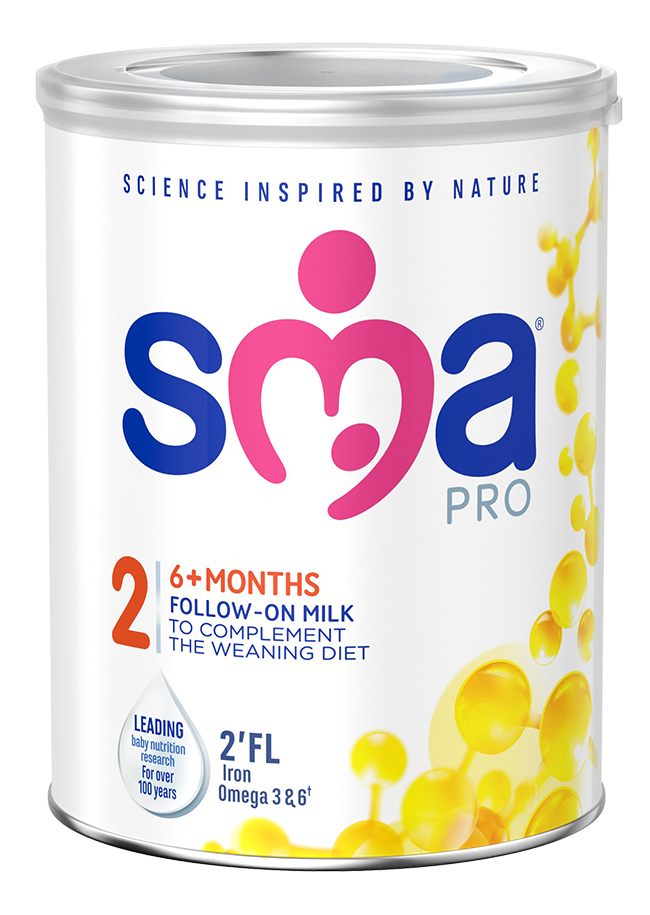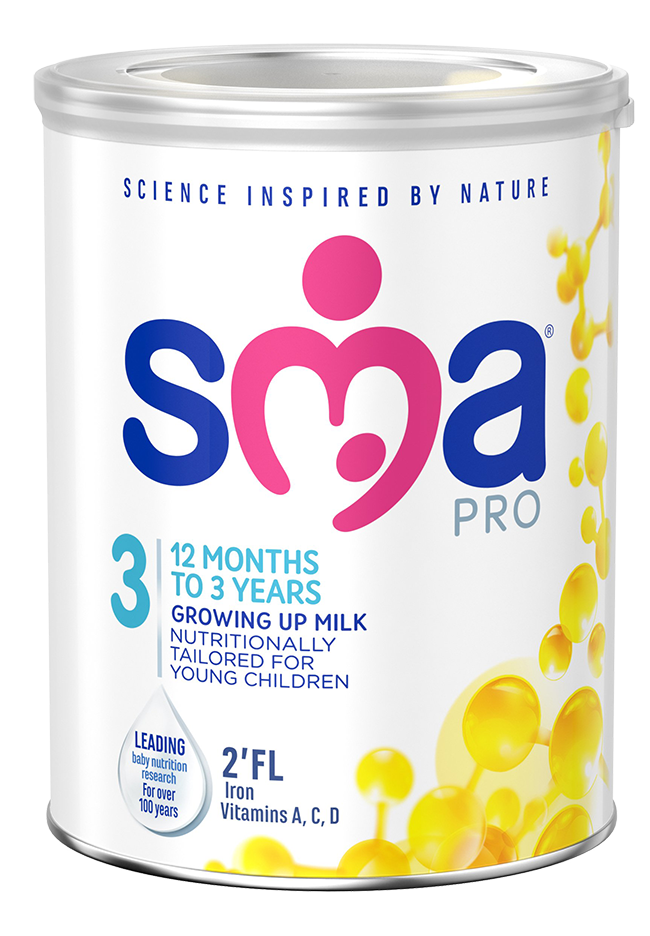Older infants and toddlers
Protein intake continues to play an important role in overall nutrition after the baby has reached 6 months of age and breastfeeding, along with appropriate complementary foods, is the best way to continue to ensure they receive an appropriate amount. Babies require less protein for their size as they develop and their growth velocity decreases. To help meet these changing needs, the protein content of breast milk falls with ongoing lactation.15
Research shows that for each additional month of breastfeeding, the child’s risk of becoming overweight is reduced by 4%.16 The benefit may also apply where mothers opt for partial breastfeeding or combination feeding.16
Data from national dietary surveys indicates that the diets of older infants and toddlers may be sub-optimal17-19 with many consuming more protein than is necessary. This may increase their chances of being overweight or obese in later life.20-22
SMA® PRO Follow-on Milk - from 6 months

Specially designed to help support appropriate growth23
- The only Follow-on Milk in the UK & Ireland supported by clinical trials which demonstrated appropriate growth from 4-12 months24,25
- The lowest protein follow-on milk in UK & Ireland26-28 – studies suggest that excessive protein in early life is linked with rapid growth and higher risk of later obesity20,29
- Vitamin D together with calcium to help support the normal growth and development of bone.
NOW CONTAINS 2’FL:
- 2’FL is the most abundant oligosaccharide found in human milk. Research suggests that infants fed a formula supplemented with human milk oligosaccharide 2’FL had immune markers closer to breast-fed infants.13
(PIP code: 347-3915)
SMA® PRO Growing Up Milk - from 1 to 3 years

Specially designed to help support appropriate growth23
- The lowest protein growing up milk in UK & Ireland30,31 – studies suggest that excessive protein in early life is linked with rapid growth and higher risk of later obesity20,29,32
- Omega 3 & 6* and iodine to help support normal growth.
NOW CONTAINS 2’FL:
- 2’FL is the most abundant oligosaccharide found in human milk.13
(PIP code: 347-4012)
*Beneficial effect of essential fatty acids is obtained with a daily intake of 10 g of linoleic acid and 2 g of α-linolenic acid.
